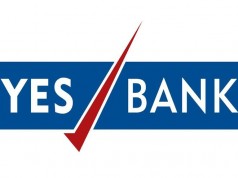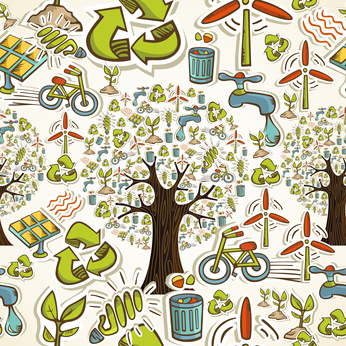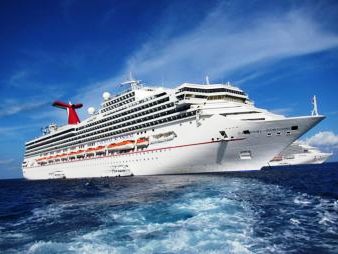 In recognition of its excellence in sustainability reporting, and in compliance with sustainable development, Qatar Steel‘s 2012 Sustainability Report has achieved an A-rating from Global Reporting Initiative (GRI) following an externally audit for assurance of the accuracy of its content.
In recognition of its excellence in sustainability reporting, and in compliance with sustainable development, Qatar Steel‘s 2012 Sustainability Report has achieved an A-rating from Global Reporting Initiative (GRI) following an externally audit for assurance of the accuracy of its content.
Qatar Steel was recognized for excellence in producing 2011 sustainability report, and it was awarded among other seven large-scale leading industrial companies in Qatar, “Runner-Up Certificate”, for commitment to sustainable development, and for the company’s performance, and progress in environmental, social and economic domains.
Mr. Ali Bin Hasan Al-Muraikhi, Director and General Manager of Qatar Steel declared, “This achievement to get A-rating in 2012 sustainability reporting reflects, with no doubt, our relentless commitment to sustainable development, and our constant efforts to preserve the environment, in line with Qatar National Vision 2030, and the National Development Strategy 2011-2016. In this respect, we are keen to turn all our industrial operations to be environment-friendly, by reducing its environmental overall impact through using state-of-the-art production technology and continuous improvement of efficiency.”
The Global Reporting Initiative (GRI) who assessed the sustainability report is an international non-profit organization, with a network-based structure. GRI has pioneered the development of the world’s most widely used sustainability reporting framework, and is committed to its continuous improvements and applications worldwide. The GRI Guidelines set out the principles and indicators that organizations can use to measure and report their economic, environmental and social performance.
Mr. Adil Al-Husseini, Technical Manager of Qatar Steel, said, “Sustainability is a critical component of Qatar Steel’s business strategy, and we are proud of this achievement. We are quite keen to maintain our excellence in sustainability reporting, and to produce even more productive, creative and innovative reports in the future. We also have to ensure that we are continually addressing economic, social and environmental performance in order to maximize value for Qatar Steel’s stakeholders.”
Qatar Steel is widely recognized as the fore-most leader in steel industry in the Gulf Cooperation Council (GCC) region. It was established in 1974 as the first integrated steel plant in the Arabian Gulf, and it commenced its commercial production in 1978, Qatar Steel operates an expansive mill site located in the heart of the Mesaieed Industrial City (MIC), 45 kilometers south of Qatar’s capital city, Doha. In 2003, Industries Qatar (IQ) took full ownership of Qatar Steel.
Qatar Steel employs a committed and skilled workforce of over 1,800 individuals to manufacture, sell, and distribute a wide range of products throughout the GCC region and other neighboring countries.
Using state-of-the-art production technology, Qatar Steel produces Direct Reduction Iron [DRI], Hot Briquetted Iron (HBI), steel billets and finished steel products namely reinforcing bars, re-bars in coils and wire-rod of different sizes. During its three past decades of operations, Qatar Steel has built an outstanding reputation for unrivaled quality, consistency and reliability.
In 2006, Qatar Steel received CARES Sustainable Reinforcing Steel certificate, which highlights the integration of sustainability into Qatar Steel’s organizational strategy and operations. Stakeholder engagement helps to identify Qatar Steel’s sustainability priorities, and focus the company’s efforts to achieve a higher degree of sustainability in operations. This year, Qatar Steel celebrated its 35th anniversary of its commercial production commencement and was named by Middle East Economic Digest (MEED) as one of the top 4 steel producers in the Middle East.
Qatar Steel’s sustainability framework is aligned with the company’s Corporate Strategy Map, and demonstrates Qatar Steel’s commitment to Qatar National Vision 2030, National Development Strategy 2011-2016 and Qatar Petroleum (QP) DG SDI initiative.
Qatar Steel has been a practitioner of the Balanced Scorecard model (BSC) over the last ten years, and has adopted the best practice Strategy Execution Premium Model XPPTM by Palladium Group, the founders of BSC. This model links VMV (Vision-Mission-Value) and Strategy Map to Qatar Steel’s day-to-day operations.
Qatar Steel’s strategy is based on six basic elements, which are as follows:
- Contributing to Qatar’s Development: Steel is an important component of Qatar’s current physical and economic development. It also plays a vital role in the country’s long term social, human, and environmental development, as outlined in the Qatar National Vision 2030. Through its commitment to the QNV 2030, Qatar Steel aims to continue as a positive force contributing to sustainable development in Qatar.
- Reducing Environmental Impact: Qatar Steel is working to reduce its environmental impact through investment in cutting edge technology and continuous improvement of efficiency. These actions improve productivity, reduce Qatar’s overall environmental impact, enhance customer loyalty, and support Qatar Steel’s promise of Making Steel Matter.
- Ensuring a Safe and Healthy Work Environment: The safety of employees, contractors and physical assets are of vital importance to Qatar Steel. Placing health and safety as a top priority ensures that everyone shares in Qatar Steel’s success.
- Developing a High Performing and Motivated Team: Qatar Steel’s highly skilled team consistently delivers quality products to satisfy its valued customers. Qatar Steel invests heavily in its employees through training and development. Qatar Steel’s satisfied and engaged workforce is major catalyst of success.
- Demonstrating Good Governance and Accountability: Maintaining a solid base of integrated management systems and an informed and experienced Board of Directors helps Qatar Steel achieve better results, remain accountable to all relevant parties, and meet stakeholders’ expectations.
- Achieving Profitable Growth: Profitable growth both for Qatar Steel and the State of Qatar, is achieved by maintaining business excellence, meeting increasing consumer demand through expansion and growth, and contributing to Qatar’s infrastructure development.
Check the following link to read/download the Full Report:
http://www.qatarsteel.com.qa/Publications/SitePages/sustainreport.aspx
Source: Qatar Steel.



















